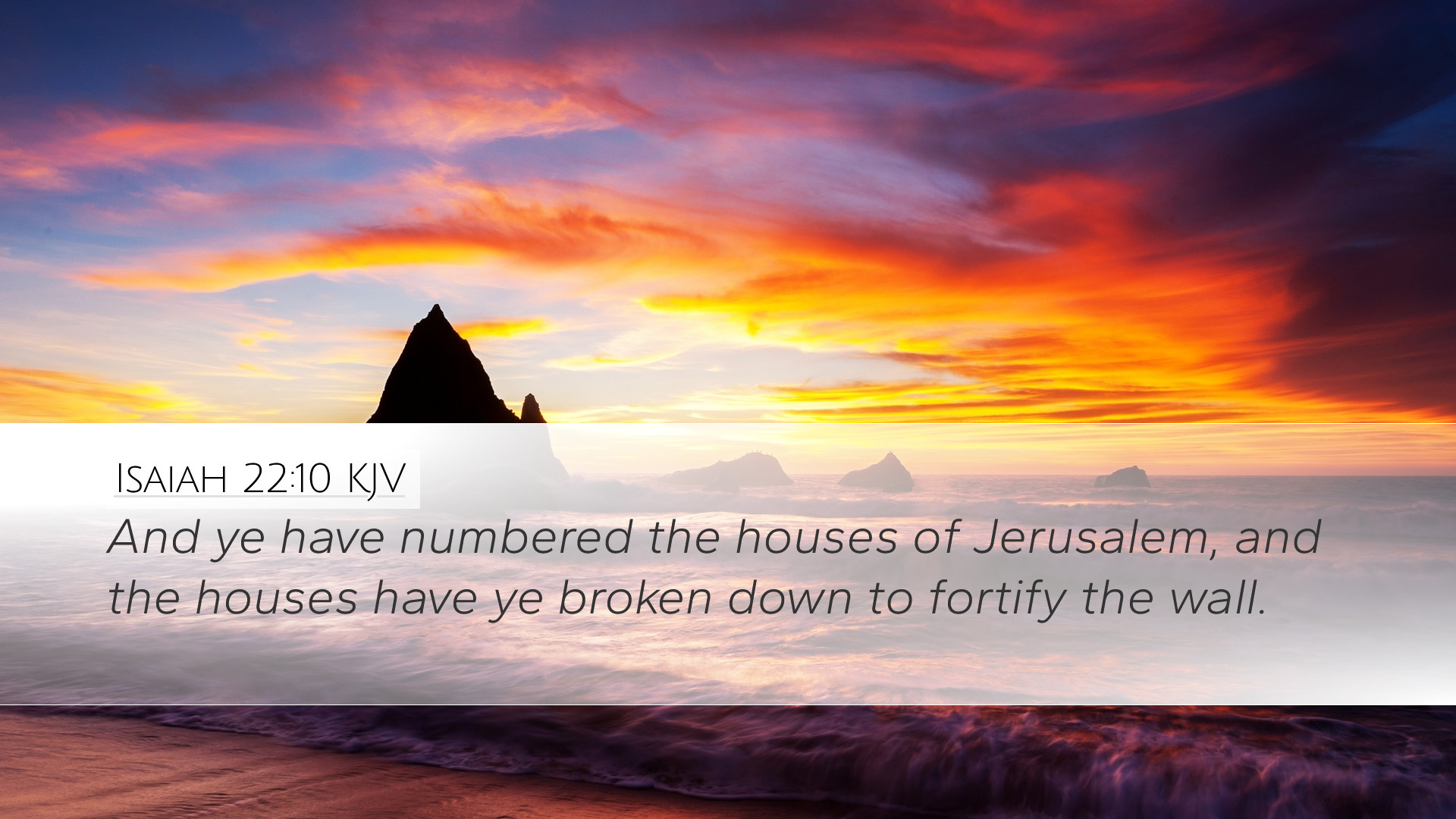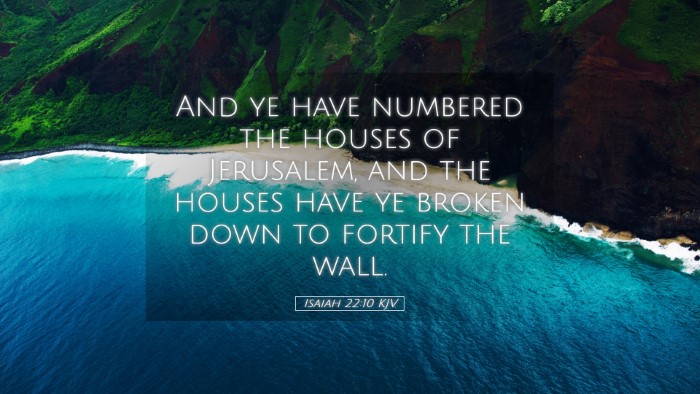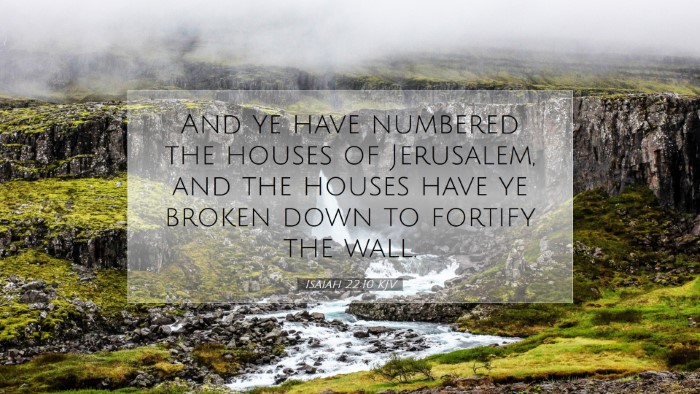Commentary on Isaiah 22:10
Isaiah 22:10: "And ye have numbered the houses of Jerusalem, and the houses have ye broken down to fortify the wall."
Introduction
This verse, amidst the prophetic declarations of Isaiah, brings forth a stern condemnation of the people of Jerusalem. It illustrates a time when the inhabitants are preoccupied with their own security and defenses while neglecting the spiritual and moral foundations that uphold a society. In examining this verse, we turn to the insights of noted commentators such as Matthew Henry, Albert Barnes, and Adam Clarke.
Exegesis of the Verse
Isaiah 22:10 reveals the desperate measures taken by the people of Jerusalem to fortify themselves against impending threats. The imagery of numbering houses suggests a systematic evaluation of resources, while the act of breaking down houses highlights a willingness to sacrifice individual security for collective safety.
Matthew Henry's Commentary
Matthew Henry provides a rich theological reflection on this verse. He emphasizes that the actions described reflect a misplaced trust in human efforts rather than dependence on divine protection. He notes that the people of Jerusalem, instead of turning to God in repentance, leaned on their own understanding and resources, leading to their eventual downfall.
Henry draws attention to the significance of the houses in this context, suggesting that they represent the lives and well-being of each family. By breaking them down, the people demonstrate a willingness to forsake familial security for the sake of their own survival. This highlights a prophetic warning against the folly of placing trust in material fortifications.
Albert Barnes' Insights
Albert Barnes, in his commentary, underlines the practical implications of the actions taken by the inhabitants of Jerusalem. He points out that the "numbering of the houses" signifies a strategic approach to defense, rooted in human wisdom. However, he cautions against reliance on such measures without acknowledgment of God’s sovereignty.
Barnes also notes that breaking down houses to fortify the wall symbolizes a broader spiritual neglect. He argues that true security comes not from physical fortifications, but from a right relationship with God. The focus should have been on seeking divine guidance rather than solely working on external defenses.
Adam Clarke’s Commentary
Adam Clarke delves into the contextual implications of this verse, emphasizing the historical and social circumstances of the time. He explains that the actions portrayed were likely a result of fear and anxiety over threats from enemies, leading to radical measures of self-preservation.
Clarke highlights the prophetic nature of Isaiah's declaration, warning the people not just of physical destruction but of moral and spiritual decay as well. The imagery conveys a sense of urgency: the act of breaking down signifies not only physical destruction but also a breakdown in the community’s values and priorities.
Thematic Considerations
- Human Dependence vs Divine Providence: This verse serves as a reminder of the tension between human efforts to secure safety and the fundamental need for reliance on God.
- Spiritual vs Material Security: The commentary suggests a dichotomy between spiritual well-being and material defenses, emphasizing that neglecting the former for the latter leads to vulnerability.
- Community vs Individuality: The text speaks to the consequences of individual actions on the community as a whole, showcasing a collective plight due to personal decisions.
Application for Today’s Readers
For pastors, students, and theologians, this verse serves as a dual warning and an encouragement. The commitment to fortify one's life, ministry, and community should not come at the expense of neglecting God’s directive and spiritual fidelity.
As churches and individuals pursue strategies for growth and safety, it is vital to reflect on the biblical admonition found in Isaiah 22:10. The reliance solely on human wisdom can lead to spiritual barrenness and a disconnect from God’s plan. Spiritual revival springs forth from recognizing our need for God rather than solely fortifying our external circumstances.
Conclusion
Isaiah 22:10 invites both reflection and action among its readers. This verse underscores the futility of human efforts at fortification without acknowledging the divine. It urges leaders and believers alike to prioritize spiritual health over mere survival tactics. In doing so, they secure a stronger foundation built on faith, obedience, and trust in the Lord.


